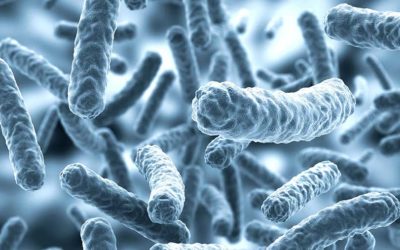What is Melatonin
Melatonin or N-acetyl-5-methoxytryptamine is a naturallipophilic substance produced and secreted in our body mainly by the pineal gland (epiphysis). This gland is situated below the corpus callosum and it is constituted by pigmented cells called pinealocytes able to react to light stimulation. Therefore production of melatonin varies depending on the circadian rhythm reaching its maximum concentration during nighttime between 2 a.m. and 4 a.m., when pinealocytes synthetize this substance. During nighttime there is a peak in plasma concentration of 60-70 pg/ml while during daytime melatonin level that circulates in the body is lower than 20 pg/ml.
Biosynthesis
Biosynthesis of this substance starts from amino acid Tryptophan that after many steps of chemical reactions – such as hydroxylation, methylation, decarboxylation, having as an intermediate of reaction also the serotonin – forms melatonin thanks to N-acetyltransferase enzyme. Once produced, melatonin is released in to the blood and acts on its specific receptors starting different cellular mechanisms (some of them not fully discovered) that allow the substance to fulfil its various functions.
Sleep disturbances
Due to the age, Melatonin production decreases because of the ageing of pineal gland with a consequent concentration decrease of this substance in the blood and a lower quality and duration of sleep. This leads to difficulty in initiating the sleep, frequent nocturnal awakenings, early-morning awakening.
In Italy there are about 12 million people suffering from insomnia, a problem difficult to treat that can have different levels of intensity.
Transient Insomnia: lasts for less than a week and can be identified as occasional if it is related to stressful events, or as repeated if it is related to pathologies (such as headache).
Short term Insomnia: lasts from one to three weeks and can be caused by stressful events, both for the body and for the mind (such as jet lag or environmental changes).
Chronic Insomnia: can last many years and is very difficult to treat because it is often related to mental disorders (neurosis, depression, obsessive-compulsive disorders).
Lack of sleep can be a problem not only related to nighttime but it has its consequences also in the rest of the day because it can cause stress, anxiety, fatigue, difficulty in working, nervousness, social and psychological difficulties.
Melatonin supplementation can be useful to counteract these difficulties as many literature studies report that exogenous melatonin administration, alone or in combination with other therapies, contributes to shorten the time is takes to fall asleep helping to initiate physiological sleep. Indeed, among the most famous properties of melatonin there is the effect on sleep disturbances and this substance often is used to regulate sleep-awake cycle, to reduce symptoms of jet lag and in case of insomnia in night-shift workers. Furthermore there are few scientific studies that confirm how the use of melatonin in spread also in clinical field on hyperactive children, adults suffering from light depression or neurodegenerative diseases such as Parkinson and Alzheimer diseases.
Melatonin, one administrated, has a half life of 3.5 – 4 hours and the principle way of elimination is renal in the urine, although there are many studies reporting that melatonin bioavailability depends on many factors. Indeed after oral administration only 15% of the substance is bioavailable, speed of absorption and peak plasma concentration decreases with food intake, moreover melatonin can be metabolized by many enzymes. Per questo motivo molto importanti risultano l’uso delle nuove tecnologie che ci consentono di avere un prodotto efficace e con un maggiore assorbimento. or this reason new technologies have a strong importance because they allow us to have an effective product with a greater absorption. Soft gel technology is widely used during the last years because it allows to encapsulate liquid substances, to hide odours and flavours, and to obtain a more stable product with a good tolerability by the patient because easier to swallow. In conclusion there is an improvement of all pharmacokinetic characteristics.
Female fertility
Chances to get pregnant reduce with female ageing as well as melatonin. In women older than 35 melatonin level have a strong decrease causing a reduced availability of this substance for tissues and organs, including ovary. This leads to a decrease in fertility that reflects a lower oocytes quality. Indeed, low oocytes quality is the main cause of failure of assisted reproductive technologies and it is linked to a reduced embryonic quality as well as to a reduced chances to get pregnant. Scientific work shows that high concentration of melatonin is found only in follicles containing mature oocytes.
Moreover clinical studies show that melatonin supplementation leads to a reduction of days of hormonal stimulation and to an improved oocyte and embryo quality, with a consequent increase of number of clinical pregnancies.
Bibliography
Turek F.W. et al. Arch Neurol 2001;58(11):1781-7.
Chan K.H. et al. Int J Mol Sci 2013;14(9):18385-18406.
Campos Costa I. et al. Am J Neurodegener Dis 2013;2(4):228-246.
De Muro R.L. et al. J Clin Pharmacol 2000;40:781-784.
Gurava reddy R. et al. Int J Adv Pharm Gen Res 2013;1(1):20-29.
Proietti S. et al. Expert Opin Drug Metab Toxicol 2014;10(9):1193-8.
Broekmans FJ et al. Endocrine Reviews, August 2009, 30(5):465–93.
VanLoendersloot LL et al. Hum Reprod Update. 2010,16(6):577-89.
Tamura H et al. Fertility and sterility. 2009,92(1): 328-43.
Tamura H et al. Journal of Ovarian Research. 2012, 5: 5
Unfer V et al. Gynecol Endocrinol. Nov 2011, 27(11):857-61.
P.Rizzo, E.Raffone, V. Benedetto Eur Rev Med Pharmacol Sci. 2010;14(6):555-61.
Insights
Cationic antiseptics
Cationic antiseptics are compounds characterized by the presence of positive charges in their chemical structure. This characteristic allows these compounds to interact with the surface of some...


